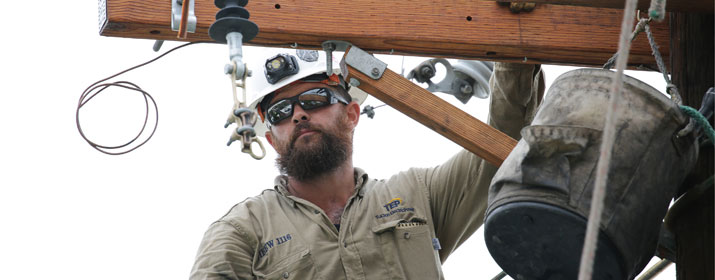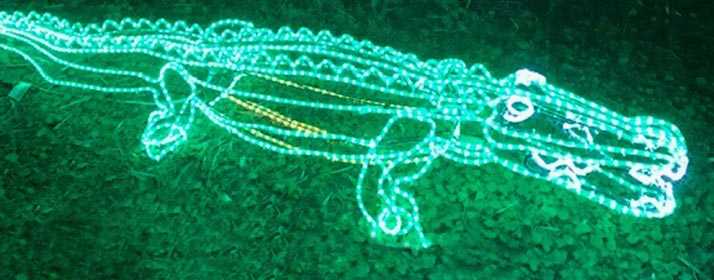
Our lineworkers keep power flowing to homes and businesses. While many people have seen our crews working in bucket trucks or climbing poles, most don’t know how hard they’ve worked to get there.
It’s a competitive field. Applicants must undergo intensive testing to become a pre-apprentice in line construction. In addition to a written exam, there’s a difficult physical test and an interview process. At TEP, we may receive 300 applications when we open 12 coveted spots.
It takes a long journey to become a journeyman. The pre-apprenticeship program takes about a year. Participants work alongside more seasoned crews to learn everything from proper climbing techniques to how to care for safety equipment. Graduation to the apprentice program means four years of intensive study, with a set of tasks and curriculum assigned in six-month increments. Their hands-on training occurs under the tutelage of their assigned journeyman lineworker. In all, it takes five years to become a journeyman. And that’s just the start in a field that demands lifelong learning and continuing education within the trade.
It takes a certain aptitude and attitude. Lineworkers typically have to be good at math, which helps inform electrical theory and knowledge. They have to be strong communicators, to help ensure safety before, during and after each job. They also must embrace teamwork. “Learning from those around you helps you grow and advance,” said Tom Kaminski, Supervisor of Line Construction at TEP.
It can be a demanding job mentally and physically. Lineworkers burn a lot of calories each day, loading heavy materials in trucks, climbing poles and clambering in and out of buckets. They also need mental toughness to work at heights and with energized lines. “You’re working with an element of danger that requires complete focus when there’s no margin for error,” Kaminski said. “The environment compounds that pressure, because you’re often working in storms, incredibly hot weather or in the dark of night.”
It’s incredibly rewarding. “Since it is such a difficult trade, since it is such a commitment to achieve that designation, and since it is such an important job that we do for the community, there’s a lot of pride that comes with it,” Kaminski said. “It’s also a tightknit group – and not just with your TEP colleagues, but other companies when you provide mutual assistance in a disaster or when you go for training. There’s a real camaraderie that runs throughout the trade.”
You can learn more about our lineworker training by watching this video.






